Pathfinders: The Golden Age of Arabic Science
£8.60£14.20 (-39%)
In Pathfinders: The Golden Age of Arabic Science, Jim al-Khalili celebrates the forgotten pioneers who helped shape our understanding of the world.
For over 700 years the international language of science was Arabic. Surveying the golden age of Arabic science, Jim Al-Khalili reintroduces such figures as the Iraqi physicist Ibn al-Haytham, who practised the modern scientific method over half a century before Bacon; al-Khwarizmi, the greatest mathematician of the medieval world; and Abu Rayhan al-Biruni, a Persian polymath to rival Leonardo da Vinci.
‘Jim Al-Khalili has a passion for bringing to a wider audience not just the facts of science but its history … Just as the legacy of Copernicus and Darwin belongs to all of us, so does that of Ibn Sina and Ibn al-Haytham’
Independent
‘He has brought a great story out of the shadows’
Literary Review
‘His command of Arabic and mathematical physics invests his story with sympathy as well as authority’
Guardian
‘A fascinating and user-friendly guide’
Sunday Telegraph
‘This captivating book is a timely reminder of the debt owed by the West to the intellectual achievements of Arab, Persian and Muslim scholars’
The Times
Jim Al-Khalili OBE is Professor of Physics at the University of Surrey, where he also holds the first Surrey chair in the public engagement in science. He was awarded the Royal Society Michael Faraday Prize for science communication in 2007, elected Honorary Fellow of the British Association for the Advancement of Science and has also received the Institute of Physic’s Public Awareness of Physics Award. Born in Baghdad, Jim was educated in Iraq until the age of 16 and it was there, being taught by Arabic teachers in Arabic that he first heard and learnt about the great Arab scientists and philosophers.
Read more
Additional information
| Publisher | Penguin (26 Jan. 2012) |
|---|---|
| Language | English |
| Paperback | 352 pages |
| ISBN-10 | 0141038365 |
| ISBN-13 | 978-0141038360 |
| Dimensions | 12.9 x 2 x 19.8 cm |

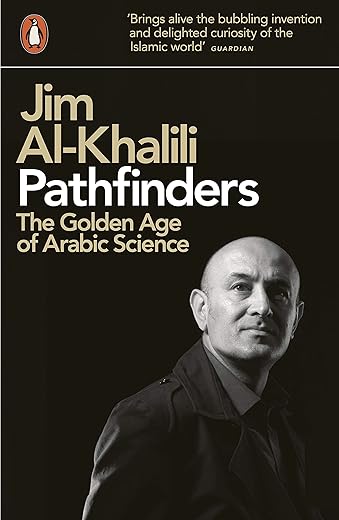

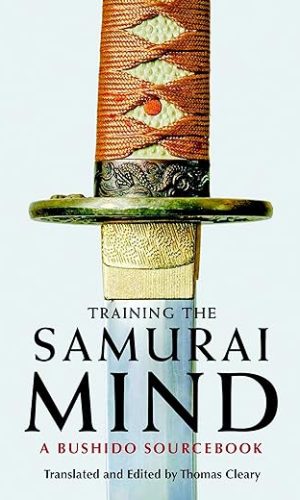
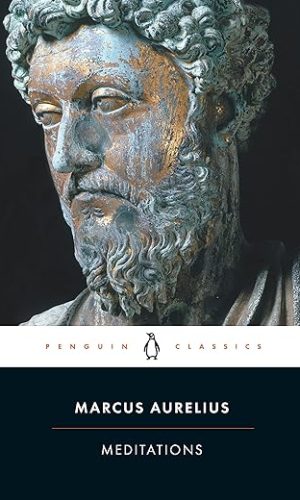


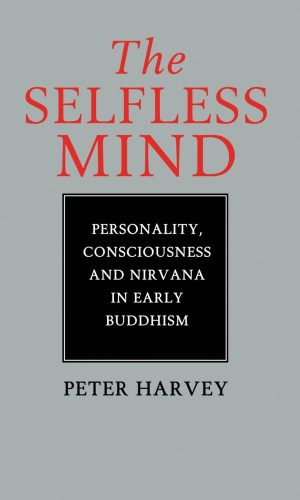
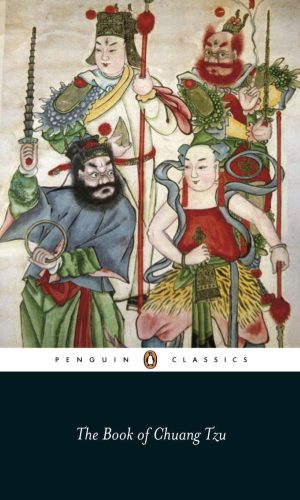
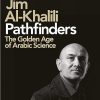
by RR Waller
Many people’s scientific history is limited to Western science alone.
This book will shock many as it reveals how much modern science owes to Arabic and Eastern science and mathematics. The Professor’s family background is Arabic and his own fields of research are ideal to show how science has developed from these roots, roots often overlooked by current writers.
Well researched and written at a level not requiring much scientific or historical knowledge.
by Stuart
A good review of the contributions of Arabic scientists, well-written and detailed. Al-Khalili’s project is to show that, far from simply being unimaginative transmitters of Greco-Roman knowledge during the Western “dark ages”, the Arabic-speaking world developed and contributed significantly to that knowledge, and he largely succeeds in this.
I only have two criticisms: firstly, al-Khalili steers clear of philosophical and theological discussions, yet the nature of science at the time (“natural philosophy”, in the terminology of the Western inheritors of the Arabic knowledge) was such that it was seen as a part of the same investigation; consequentially I would have liked more information about the general worldview of the sciento-philosophers he covers.
Secondly, in his eagerness to show how the Arabic-speaking world made genuine contributions (coupled with, I’d speculate, a slightly Kuhnian view of how science progresses), he sometimes seems a little over-keen to find each person’s Great Contribution. Especially in the section on the mathematician al-Khwarizmi, he seems to be casting around rather desperately to locate the Single Great Thing that al-Khwarizmi did, yet unnecessarily so: it’s clear that the guy massively progressed maths in general, and if that was by a little bit here and a little bit there, then that’s fine by me. No need to locate his Nobel Prize-equivalent discovery.
by Amazonian Customer
At school, I was taught that science and reason simply stopped at the end of the Roman empire and didn’t start again until the beginning of the Renaissance.
However, I’ve read enough books and watched enough documentaries to be well aware that while Britain was in the Dark Ages, other parts of the world were forging ahead with exciting discoveries in all fields of enquiry, from mathematics to astronomy, physics to chemistry and much more besides.
In Pathfinders, Jim Al-Khalili fills in a lot of the gaps, introducing us to the scientific stars of the Islamic world and their discoveries, many of which are the building blocks for the breakthroughs commonly believed to have been made independently by later (white male) geniuses.
Interesting and informative, it really helps to put some context and detail to something I kind of knew in theory, but didn’t know a lot about.
by Dr. H. A. Jones
Pathfinders: The golden age of Arabic science, by Jim al-Khalili, Allen Lane, 2010, 336 ff.
The origins of western science
By Howard Jones
In 2002, in her book Ornament of the World, Maria Rosa Menocal gave us an insight into the debt we owe the Islamic civilization of al-Andalus, which from 750 to 1492 did so much to shape the western culture of the post-Renaissance. We tend to think of western science as essentially beginning with Copernicus, with a nod in the direction of some of the ancient Greek philosophers, such as Aristarchus for the heliocentric theory; or Leucippus and Democritus for the atomic theory. Bertrand Russell portrayed the Islamic scholars as doing little other than transcribe the scientific philosophy of ancient Greece. Menocal showed us how Christian, Jewish and Islamic scholars worked together in harmony not only to render ancient Greek ideas into Arabic, Hebrew and Latin, but also to create much that was new. Al-Khalili adds to this source of original knowledge.
Jim al-Khalili presents another side of this story, but his book focuses on the 9th century Abbasid caliphate of Abu Ja’far Abdullah al-Ma’mum that was centred on Baghdad. It was called Bayt al-Hikma, the House of Wisdom. Jim al-Khalili is Professor of Theoretical Physics at the University of Surry and has already written one of the more accessible books on quantum physics. There were scholars in Baghdad in many of the scientific disciplines. The names of some of these have emerged in the west over recent decades, like al-Khwarizmi whose book, the title of which is abbreviated to al-Jebr, gave us our algebra; al-Biruni, who was a contemporary of Ibn Sina (Avicenna) and debated the philosophy of science with him. Our word `alchemy’ is from the Arabic `al-kimiya’, `the art of transmutation’; and there are many other words in everyday use, such as alkali and algorithm, that have an Arabic origin.
Most of the other scholars whose work al-Khalili describes were quite new to me. There is something of the general history of the period in this book; but for the most part it focuses on cosmology, arithmetic, algebra, physics, philosophy and medicine in separate chapters, and the contribution of the Arabian scholars. We must remember that this is only two centuries after the life of The Prophet and the social system that his vision inaugurated. So the progress made in learning was considerable and rapid. Of course, the Islamic scholars were also busy translating Greek and Roman texts, but this book puts into perspective the derivative work with the original.
This is a fascinating book, full of scholarship and original historical material, and absolutely no symbolic mathematics to deter the reader. It puts the ancient scholars of Baghdad and their contribution to our heritage into a very human context, though perhaps we could have done with less personal material. There are several pages of Notes, a Glossary of scientists, and an Index at the end. This would make an excellent complement to the books by Menocal and that on the history of western ideas by Richard Tarnas.
Dr Howard A. Jones is the author of The Thoughtful Guide to God (2006) and The Tao of Holism (2008), both published by O Books of Winchester, U.K.; and The World as Spirit published by Fairhill Publishing, Whitland, West Wales, 2011.
The Ornament of the World: How Muslims, Jews and Christians Created a Culture of Tolerance in Medieval Spain
The Passion Of The Western Mind: Understanding the Ideas That Have Shaped Our World View